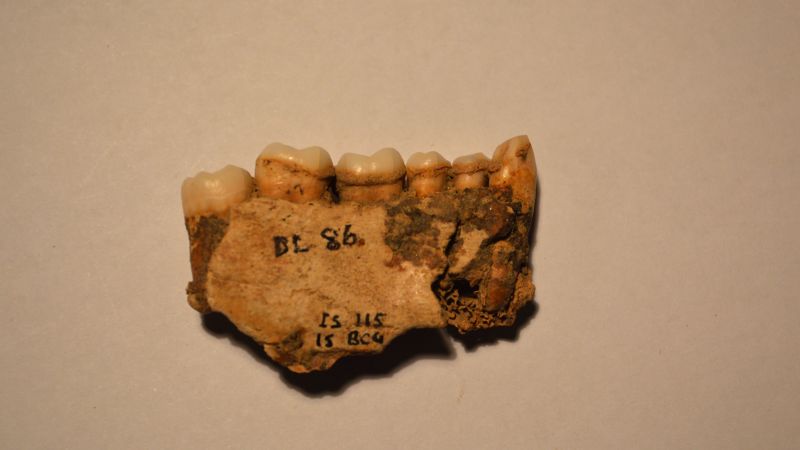Massachusetts residents can vote to nix probable administrative waste on their dental insurance policy rates by a ballot referendum this November, but a new examination warns individuals could not always see a main influence — even if the problem succeeds at the polls.
Problem 2 on the basic election ballot asks no matter whether voters assistance demanding dental insurance policies carriers to devote 83% of premiums on affected individual care, not on administrative costs, taxes or gains. If carriers commit less than 83 cents on each and every dollar of month to month subscriber rates — a threshold known as a decline ratio — they ought to ship rebates to insured people and groups.
But it is hard to gauge no matter whether the loss ratio is pegged at the accurate sum, as perfectly as what influence it could have on dentists and patients, according to a report unveiled Thursday by the Centre for Point out Coverage Analysis at Tufts University’s Jonathan M. Tisch College or university of Civil Everyday living.
“This ballot concern is created on somewhat thin facts,” the report shared with MassLive states. “It’s not clear no matter if dental insurers are at this time near to — or considerably from — the proposed 83 p.c prerequisite. Certainly, there’s no distinct foundation for the 83 per cent figure, and imposing it would make us the only state with a mounted loss ratio for dental insurance coverage.”
- Read through a lot more: Will the millionaires tax on the November ballot help Mass. inhabitants? It depends, new report finds
Place in different ways, the report postures there could both be “some rather small” or “some most likely much more substantial” and spectacular results from the ballot referendum, dependent on the validity of scant study to day.
The current dental insurance policies provision would acquire impact in January 2024.
The report, which does not take a stance for or from the ballot dilemma, notes instituting a dental loss ratio echoes a commonplace typical for healthcare insurance. In Massachusetts, clinical insurers should satisfy an 85% or 88% ratio, but they are also supplied far more versatility than dental insurers would have to comply with condition rules.
Significant professional medical insurance coverage premiums are also predicated on bigger risk calculations, in contrast to less costly dental insurance premiums that choose into account lessen hazards and stricter “usage boundaries.”
“When crafting decline ratios for health-related insurance coverage, lawmakers and regulators have been guided by copious details about current market dynamics and the monetary wellbeing of insurers,” the report states. “There is no related info about the present finances of dental insurers in Massachusetts. The just one appropriate research becoming circulated utilizes sound procedures but was commissioned by a countrywide trade team for dental insurers.”
That analyze, commissioned by the Nationwide Affiliation of Dental Designs, observed most big coverage strategies are presently in the ballpark of the ballot referendum, with their reduction ratios hovering all-around 80%. To incorporate 3 percentage points, insurers would have to have to lessen regular rates or streamline their operations to slash administrative fees or revenue, according to the Tufts report.
In yet another possibility, insurers could pay out extra in dental promises, such as enabling dentists to invoice a lot more for their techniques. That, in influence, could give dentists additional negotiating leverage as insurers simultaneously strive to satisfy their new decline ratio necessity.
But it could also make people spend a lot more for their dental treatment.
- Read extra: To qualify for Mass. tax refund, you need to meet this forthcoming deadline
“One reason is that most dental insurance coverage involves pretty superior co-insurance costs, where the individual pays a percentage of the complete cost,” the report states. “Another is that with bigger selling prices far more individuals will hit their once-a-year highest — and will need to shell out for any added care with their personal revenue.”
The report cushions that state of affairs, nevertheless, by predicting price tag will increase “should be restricted.” The ballot referendum also “probably won’t bring about the form of huge, top quality reductions that could make insurance coverage more cost-effective,” the report states.
A voter facts tutorial from Secretary of Condition Monthly bill Galvin’s workplace contains a starker warning about the ballot dilemma. An opposing viewpoint from Louis Rizoli, of the Committee To Secure Public Accessibility To Good quality Dental Care, promises countless numbers of Bay Staters would lose their dental insurance policy.
“With purchaser price ranges soaring, we never have to have a new regulation that will raise expenditures and minimize preference,” Rizoli wrote.
Still, the ballot dilemma could spur a more clear insurance policy marketplace, paving the way for “more deliberate policy changes going forward,” the report states. Dental benefit designs would need to have to comply with regular reporting needs, like disclosing their reduction ratio and administrative expenditures to the commissioner of the Massachusetts Division of Insurance policy.
- Study more: Healey tends to make lease, housing crisis central to campaign for Mass. governor
The Committee on Dental Coverage High-quality, which supports the ballot question, claimed Delta Dental compensated $382 million on executive bonuses, commissions and payments in 2019 in Massachusetts, even though paying $177 million on patient treatment, according to the state’s voter facts guide.
Must the ballot query move, the Massachusetts Legislature could alter the loss ratio and manage its implementation, potentially deploying a gradual method to achieve 83%.
“If voters reject this ballot problem, the standing quo will keep on, which suggests dental insurance businesses will preserve their existing balance of rates and costs,” the report states. “At the same time, there will be no reporting modifications or broad enhancement in our information of the underlying funds of dental insurers in Massachusetts.”




/cloudfront-us-east-1.images.arcpublishing.com/gray/3WUKM63KKZFGBOHKCMLBZOBV7A.jpg)
